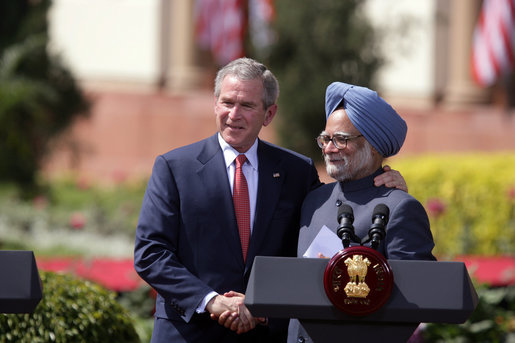Abstract:
Since shortly after the July 18, 2005 statement released by President George W. Bush and Prime Minister Manmohan Singh, NSSPI has supported a variety of technically based analyses aimed at thoroughly understanding the implications of various directions the agreement for civil nuclear cooperation could take. Here “implications” include consequences of both the intended enhancement of India\’s ability to engage in normal international commerce in nuclear materials and technology, and perhaps unintended consequences of changes in India\’s ability to produce nuclear arms.
To inform its technical analysis of the US-India accord, NSSPI has also undertaken an accurate assessment of India\’s nuclear fuel cycle. The cornerstone of any civilian nuclear technological support necessitates the separation of military and civilian facilities. The entwined nature of the Indian facilities was assessed by a full-scale microscopic view of the complete Indian nuclear fuel cycle. Assessment of uranium produced and consumed, plutonium generated and energy produced with available technology, and advanced projects attempted lead to a detailed view of the Indian situation. This study shows the possibilities of international collaboration and analyzes the future projections under different scenarios.

President George W. Bush and India\’s Prime Minister Manmohan Singh exchange handshakes Thursday, March 2, 2006
Associated Publications:
- S.B. Gerlt, P. Nelson, S Rajgopal, L.V. Krishnan, "Towards Safeguarding the Fast Breeder Reactor Fuel Cycle", 55th Annual Meeting of the Institute of Nuclear Materials Management, Atlanta, Georgia, 20-14 July 2014.
- Stephen B. Gerlt, "Towards Safeguarding the Fast Breeder Reactor Fuel Cycle", NSSPI Report, NSSPI-14-001 (2014).
- A. Batra P. Nelson, "Safety, Safeguards, and Security in Indian Civil Nuclear Facilities", NSSPI Report, NSSPI-12-010 (2012).
- A. Batra, P. Nelson, "Safety, Safeguards and Security in Indian Nuclear Power Plants (3S-INPP)", 52nd Annual Meeting of the Institute for Nuclear Materials Management (INMM), Palm Desert, CA, July 17-21, 2011.
- P. Nelson, "Perspectives on the Proposed US-India Cooperation in Civil Nuclear Energy", MSC Student Conference on National Affairs, Texas A&M University, February 27, 2010.
- T.V.K. Woddi, W.S. Charlton, P. Nelson, Indias Nuclear Fuel Cycle: Unraveling the Impact of the U.S.-India Nuclear Accord, Synthesis Lectures on Nuclear Technology and Society, Morgan & Claypool Publishers, 2009.
- P. Nelson, D.R. Boyle, "Flawed India Pact Opposition", Washington Times September 29, 2008.
- P. Nelson, "One Last Comment", Nuclear News (June 2008), p. 11 (letter).
- T.V.K. Woddi, "Nuclear Fuel Cycle Assessment of India: A Technical Study for U.S.-India Cooperation", Ph.D. Dissertation, Texas A & M University, December 2007.
- P. Nelson, T.V.K. Woddi W.S. Charlton, "A Framework for Analysis of the Weapons Implications of the U.S.-India Nuclear Accord", NSSPI report: NSSPI-07-010.
- D. Boyle, P. Nelson, W. Miller, "U.S.-India Nuclear Alert", The Washington Times, 15 July 2007.
- T.V.K. Woddi, W.S. Charlton, P. Nelson, J. Ragusa, "A Technical Study of Nuclear Fuel Cycle and the Three Stage Power Program of India for US-India Nuclear Cooperation", Annual Meeting of the Institute for Nuclear Materials Management, July 8-12, 2007, Tucson, AZ.
- T. Woddi, W.S. Charlton, Paul Nelson, Jean Ragusa, "Nuclear Fuel Cycle Assessment of India: A Technical Study for Nuclear Cooperation", Proceedings of the 29th ESARDA Annual Meeting, Aix-en-Provence, France, May 22-24, 2007.
- P. Nelson, "Stability of the Prospective US-India Civil Nuclear Cooperation", Fifth International Workshop and Round Table on Cooperative Stability in South Asia (The New Regional Scenario and the India-Pakistan Nuclear Dimension), January 2007.